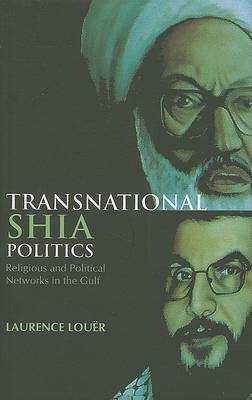Laurence Louer, author of the critically acclaimed To Be an Arab in Israel, brings her extensive knowledge of the Middle East to an analysis of the historical origins and present situation of militant Shia transnational networks. She focuses on three key countries in the gulf: Kuwait, Bahrain, and Saudi Arabia, whose Shia Islamic groups are the offspring of various Iraqi movements that have surfaced over recent decades. Louer explains how these groups first penetrated local societies by espousing the networks of Shiite clergymen. She then describes the role of factional quarrels and the Iranian revolution of 1979 in defining the present landscape of Shiite Islamic activism in the Gulf monarchies. The reshaping of geopolitics after the Gulf War and the fall of Saddam Hussein in April 2003 had a profound impact on transnational Shiite networks. New political opportunities encouraged these groups to concentrate on national issues, such as becoming fierce opponents of the Saudi monarchy. Yet the question still remains: How deeply have these new beliefs taken root in Islamic society? Are Shiites Saudi or Bahraini patriots?Louer's book also considers the transformation of Shia movements in relation to central religious authority.
While they strive to formulate independent political agendas, Shia networks remain linked to religious authorities ( marja') who reside either in Iraq or Iran. This connection becomes all the more problematic should the marja' also be the head of a state, as with Iran's Ali Khamenei. In conclusion, Louer argues that the Shia will one day achieve political autonomy, especially as the marja', in order to retain transnational religious authority, begin to meddle less and less in the political affairs of other countries.
- ISBN10 0231700407
- ISBN13 9780231700405
- Publish Date 1 November 2008 (first published 7 October 2008)
- Publish Status Temporarily Withdrawn
- Out of Print 3 April 2013
- Publish Country US
- Imprint Columbia University Press
- Format Hardcover
- Pages 256
- Language English
